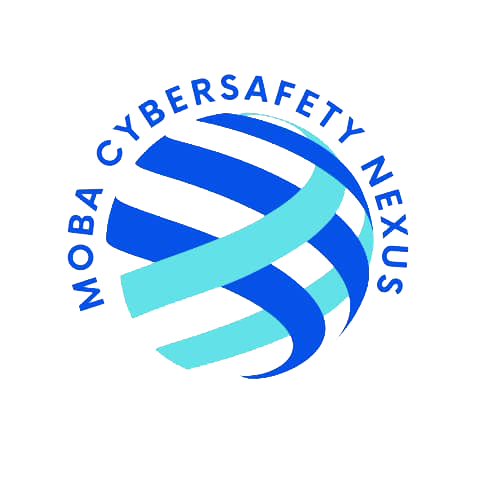The Rise of Ransomware—How You Can Avoid Being a Victim

In the heart of Lagos, Amaka sat at her desk in one of the bustling Sterling Bank branches. Her phone buzzed with a text from Ebuka, who was back in his hometown, but his words carried an urgency she hadn’t seen before.
“Amaka, you won’t believe what’s happened! The village school’s computer was locked. They’re asking for money to release the files. Can you help?”
Her heart skipped a beat. As a cybersecurity expert, Amaka knew exactly what was happening: Ransomware. This malicious cyberattack had reached even the most unsuspecting corners of Nigeria, and now it was threatening the small community Ebuka loved.
What Is Ransomware?
Ransomware is like a digital kidnapper. Hackers infiltrate a computer or network, encrypt all the data, and demand a ransom to restore access. They threaten to delete or expose sensitive information if they don’t get paid.
In simple terms, it’s like someone locking your entire house and refusing to give you the key unless you hand over a hefty sum. But instead of a house, it’s your files, your photos, your work—everything locked away behind an unbreakable wall of code.
The Story of Ebuka and Amaka: Protecting What Matters
Back in the village, Ebuka watched helplessly as the local school struggled to cope with the attack. “How can we pay such a large amount of money, Amaka? These hackers want everything we have.” His voice cracked with frustration.
Amaka took a deep breath. “Don’t worry, Ebuka. We won’t give in to their demands. The first rule of ransomware is never to pay the ransom. Paying only encourages the attackers to target others. We’ll figure out a way to recover the files without giving in.”
As soon as she closed from work, thankfully it was a Friday, she got ready and took the last flight for the day to Asaba meeting up with Ebuka who was already waiting to pick her up at the airport for the recovery. Together, they worked on a plan. And as they did, Amaka realized that just like love, protecting yourself from cyber threats required a bit of trust, planning, and, most importantly, taking action before the worst happened.
Practical Tips to Avoid Ransomware (Inspired by Ebuka and Amaka):
- Backup Your Data Regularly
Just like Ebuka’s dedication to keeping his farm tools sharp, you must ensure your data is backed up frequently. Whether you’re running a business or keeping personal records, always have copies stored on an external drive or a cloud service. That way, even if ransomware strikes, you won’t lose your precious files. - Use Strong, Unique Passwords
As Ebuka and Amaka strengthened their bond with trust and love, so too must you create strong, unique passwords for your accounts. Avoid using the same password across multiple platforms—think of each password as a lock that must be impenetrable. Use a password manager if necessary to generate and store secure passwords. - Enable Two-Factor Authentication (2FA)
Ebuka knew better than to rely solely on physical strength in the village; he always had a backup plan. Likewise, don’t rely on just one layer of protection for your online accounts. Enable two-factor authentication, which requires you to verify your identity with something you know (password) and something you have (e.g., a phone or security key). This makes it much harder for attackers to break into your accounts. - Don’t Open Suspicious Emails or Click Unknown Links
Amaka reminded Ebuka of the danger of trusting unknown sources—whether it’s a friendly stranger offering help or a random email promising a gift. Avoid clicking on suspicious links or downloading attachments from emails that seem off, even if they appear to be from someone you know. Ransomware often sneaks into your device through these phishing attempts. - Update Software Regularly
Much like how Ebuka sharpened his tools and kept his farm equipment ready for action, updating your software is vital for staying safe. Hackers look for vulnerabilities in outdated systems, so ensure that your operating system, antivirus, and apps are always updated to the latest versions. - Invest in Strong Antivirus and Anti-malware Software
Just as Ebuka set up traps to protect his crops from intruders, install antivirus and anti-malware software to detect and block threats before they can harm your computer. Make sure to run scans regularly, ensuring that your system stays clean from potential attacks. - Have a Response Plan in Place
When Ebuka faced danger in the village, he always had a strategy in mind. You should have one too. Prepare a ransomware response plan for your business or personal data. If your files get locked, knowing how to act quickly—whether it’s disconnecting from the internet, reporting the incident, or contacting experts—can make a huge difference.
Amaka Saves the Day
After hours of working together, Amaka and Ebuka managed to recover the school’s files using her expert knowledge, without paying the ransom. As they celebrated with a quiet dinner by the fire, Ebuka looked into Amaka’s eyes with admiration.
“You saved the school and protected our future, just like you protect my heart every day,” Ebuka said softly, his voice filled with emotion.
Amaka smiled. “Cybersecurity and love, Ebuka, both require constant attention. You don’t wait until there’s a problem—you prepare and protect what matters most from the start.”
Ready to Protect Your Heart and Your Data?
Just like Ebuka and Amaka navigated the challenges of love and cyber threats, you can protect yourself from the rising threat of ransomware. Whether it’s for your business or personal files, don’t wait until it’s too late.
Grab your copy of Encrypted Heart now on Selar here and discover how love and cybersecurity come together in a thrilling story that teaches real-world lessons.
Don’t let ransomware hold your data hostage—take action today and secure your digital world!
























